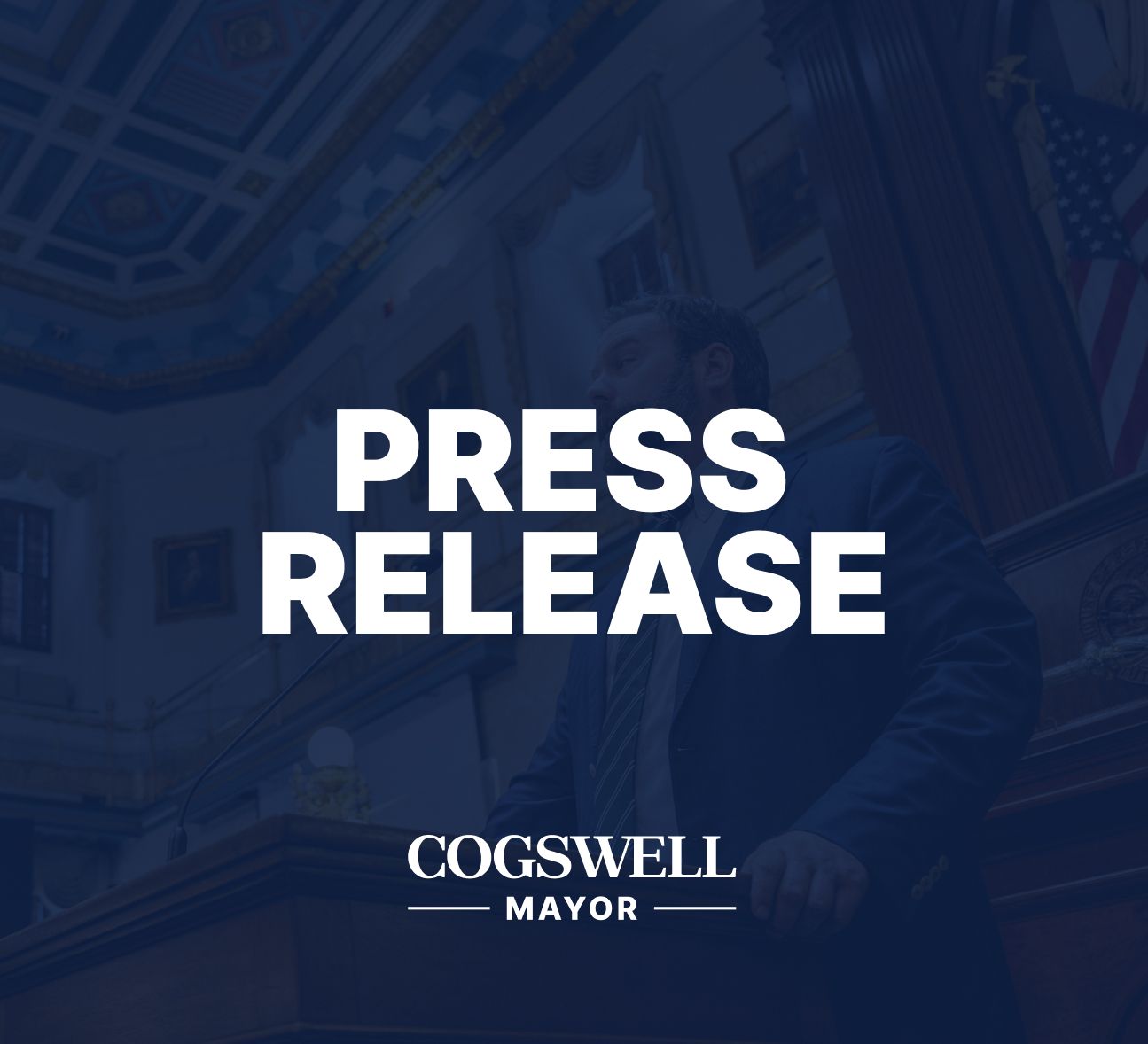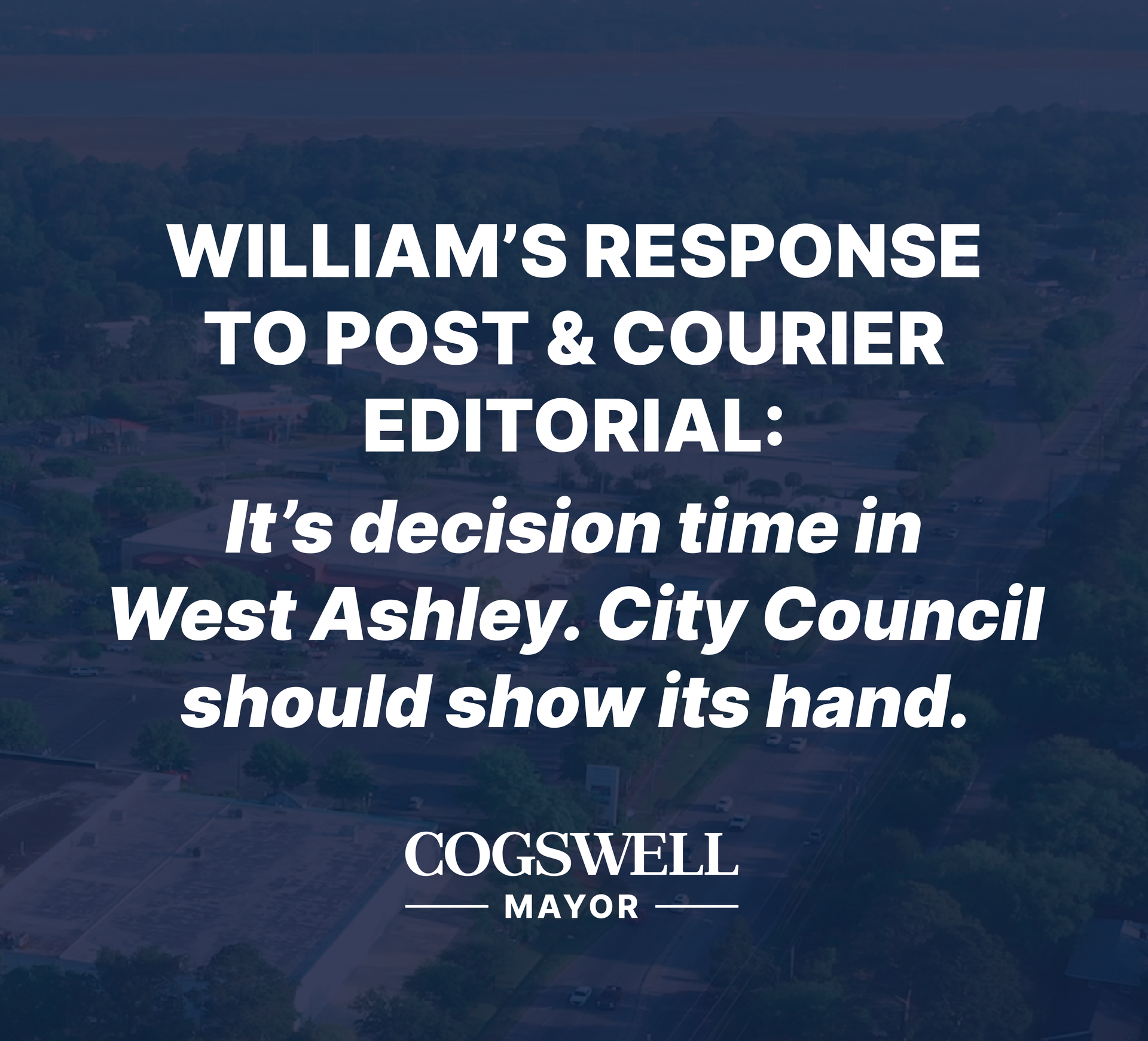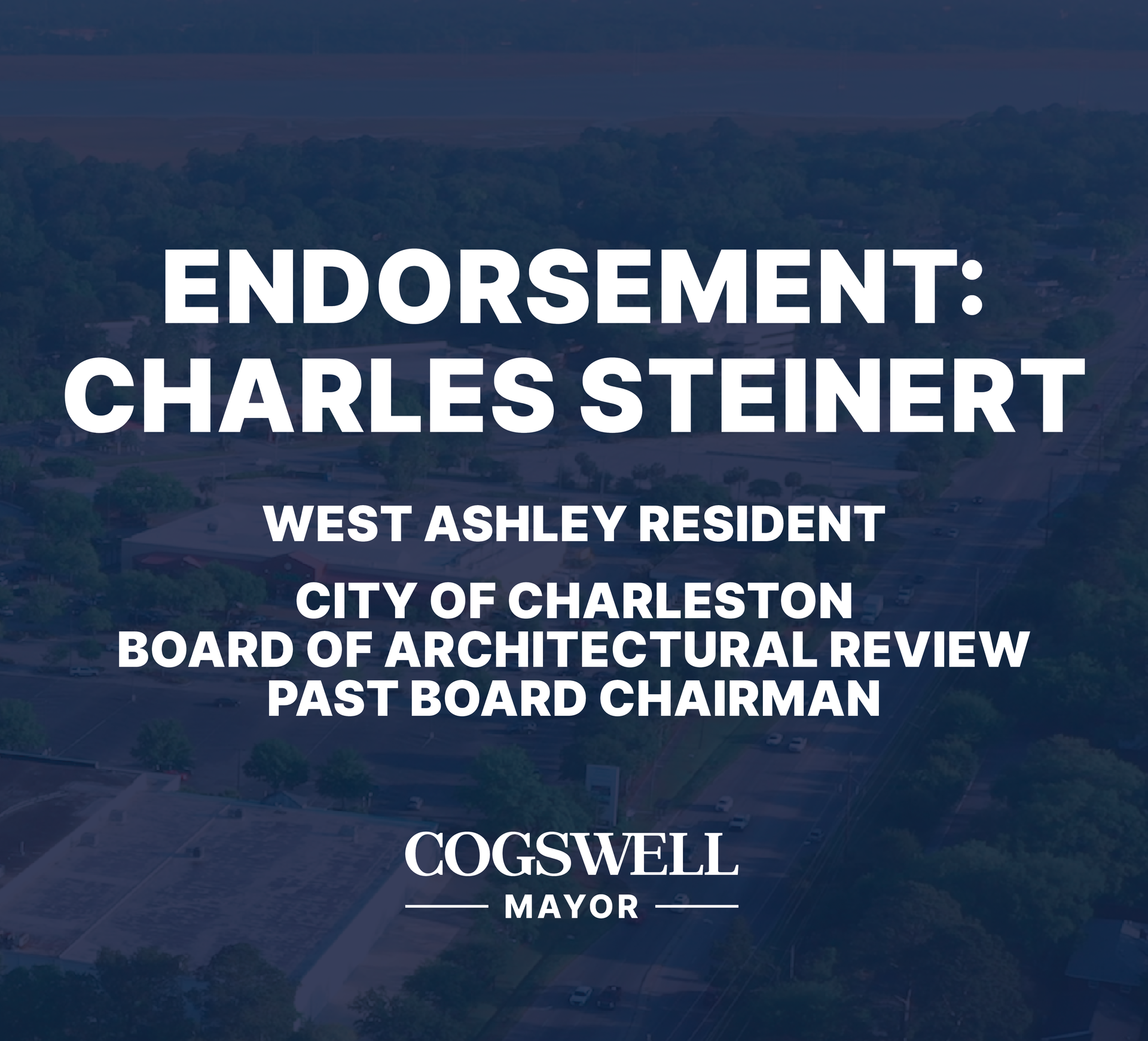Commentary: There’s a better way forward for this West Ashley gateway
April 7, 2023
Commentary: There’s a better way forward for this West Ashley gateway
By William Cogswell
published in The Post & Courier
April 6, 2023
April 6, 2023
- The city of Charleston has an incredible opportunity to create an iconic gathering place at the intersection of Sam Rittenberg Boulevard and Old Towne Road, but it will require leadership and vision to create the catalyst for this area’s long overdue revitalization.
Located at the intersection of two of West Ashley’s main arteries, the site consists of two tracts that together comprise more than 35 acres: the much smaller Sumar Street site owned by the city (3.5 acres of vacant land commonly referred to as the old Piggly Wiggly site) and the much larger privately owned Ashley Landing property (home to the current Publix shopping center). For years, the highly visible Sumar Street site has been an eyesore that has come to symbolize West Ashley’s neglect on behalf of the city.
This week, the city’s long-delayed updated plans for the redevelopment of the Sumar Street tract were presented in executive session of City Council, and the public price tag has exploded to a reported $45 million — a number that is well beyond the realm of reality. This is due to cost overruns, expensive underground parking and interest rates nearly tripling in the six years since the city took ownership.
At the same time, the owners of Ashley Landing have been under fire for proposing the relocation of Publix, in part to accommodate a high-density market-rate apartment complex. This has resulted in a standstill that has neighbors extremely frustrated with no leadership charting a productive course forward.
I believe there is a solution to this compounding problem: The city needs to insist that these two parcels be designed, engineered and redeveloped together. It is the right thing to do in that it would allow the relocation of Publix (replacing a Big Lots and a Dollar Tree) and the building of a residential and retail product that would be more in scale with the neighborhood (think Avondale). My proposed course of action would include 20% affordable units, more public green space and amenities than currently contemplated in the Sumar plan, a more comprehensive stormwater design to mitigate flooding, better access to public transportation and an exciting opportunity for public art to welcome residents and visitors to an integral part of our city that has been neglected for far too long.
To be clear: I have no vested interest in either property, except that I see an opportunity for a win-win. I have met with many of the concerned neighbors, along with the owners of the Ashley Landing property. All are ready and willing to flush out the details that work for all parties and to adhere to the principles and guidelines outlined in the West Ashley Revitalization Plan, which to date has seen little to no activity.
But the city alone holds the cards as to which way this will go: It owns the Sumar Street site and more importantly can dictate, through a development agreement, where future tax-increment financing funds will go. The city’s current plan is, in my mind, a highly irresponsible use of public dollars in that whatever limited TIF funding is produced would all be needed to subsidize an over-market project that doesn’t come close to working financially. It is yet another example of a ham-fisted government solution that is well beyond a day late and well over a dollar short.
By comparison, what I have outlined will provide far more revenue (about $3 million annually) that could be used to ensure a lower height and scale residential-retail product complete with a real component of affordability and more public space and amenities than the city’s Sumar plan. It also could provide street, sidewalk, public transportation and drainage improvements, as well as an awesome opportunity for public art at the “suicide merge” that slows traffic and welcomes people to West Ashley. Thirty-five acres versus 3.5 acres transformed in a fiscally responsible way that adds to and enhances our city’s character is hard to argue with.
The question is: Will city leadership continue to stand back and let the higher-density option with no affordability component move forward, which the owner can do by right, while the city continues to fumble its own redevelopment next door, which it has been planning for more than six years with nothing to show except a blown budget?
Or will the city take off its blinders and recognize the incredible leverage it has to make a more comprehensive and mutually beneficial plan happen?
We need leadership and vision — this is a world I know — and, to me, the answer is crystal clear.
William Cogswell, a developer and former S.C. House member, is a candidate for mayor of Charleston.
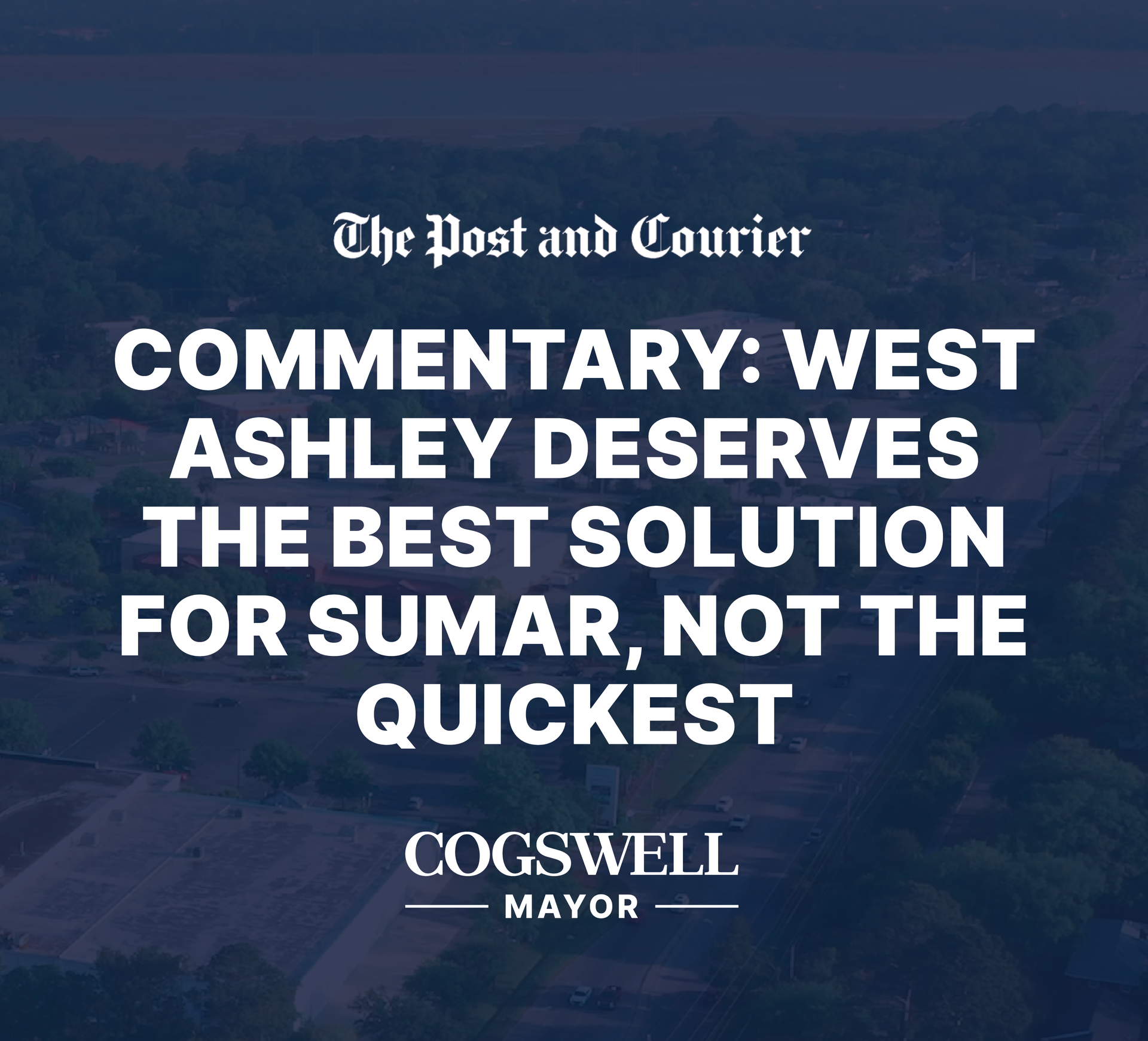
By William Cogswell published in The Post & Courier August 4, 2023 Click here to read article on The Post & Courier website Much has been written about the proposed redevelopment of the old Piggly Wiggly site. With a city election right around the corner in which the residents of West Ashley will provide more than 40% of the vote, the urgency to do something — anything — to fulfill long-neglected promises to revitalize this critical part of the city has jumped into warp speed. For almost seven years, the people of West Ashley have been promised a new gateway to their community. Today, the lack of leadership from the current administration has left residents with a hefty bill from a developer, a sharply divided City Council and a derelict lot with no clear path forward. It doesn’t have to be this way: An iconic entrance to West Ashley can be done, but it requires creativity, pragmatism and experience. Mayor John Tecklenburg claims there is no other way to meet residents’ high expectations for this project than the options already presented. That lack of proactive and creative thinking is why I am running for mayor. There are better options for West Ashley. This spring, I proposed a bold solution combining the expensive 3.3-acre city-owned Sumar Street parcel with the controversial high-density apartment project that’s being presented on the 30-plus acre Ashley Landing site to the south. With leadership, vision and a transparent agreement defining where and how future tax revenues could be allocated, a win-win scenario can be achieved that would be less expensive and far more impactful to the residents. If the option to positively redevelop 35 acres versus 3.3 acres was presented, wouldn’t you want to consider it? It may take longer, but given the current boondoggle we are in, I doubt it. Plus, the city controls the process. A true iconic entrance to the oldest and most neglected part of the city can be done in a more fiscally responsible way — think Avondale coupled with Charles Towne Landing mixed with Windermere and even a touch of the Coburg Cow. It would be a positive and fully viable solution to what has become an increasingly toxic situation. This is a world I know. I have spent the past 25 years redeveloping sites like this (Cigar Factory, GARCo Mill), and I have successfully completed several complicated projects that include workforce housing, green space, creative stormwater solutions and government offices. The scenario I am proposing would only require the city to provide money once the overall development is completed based on a mutually agreed-upon design with ample public input. This is important because digging into what few financial details there are of the mayor’s plan, it looks like the city may be required to commit at least half, if not all, of the proposed $45 million prior to completion, which is a massive risk to taxpayers. I can also say with confidence and from a professional point of view that the mayor’s project, which is 60% publicly funded, will not inspire new investment in West Ashley. Quite the opposite, especially with today’s economic headwinds. What it will do is produce a lot more developers coming to the city with their hands out. Finally, it is not clear that the city actually has the revenue in hand to fund the mayor’s plan without more private projects like the large apartment building at Ashley Landing being built (which is, at best, three years away and has a 1,100-signature petition opposing it). We are told some portion is coming from parking fees and the balance from a tax increment financing district that has seen little to no activity. What are the details? What are the terms? It matters because when heavily subsidized projects like this fail, the burden will be on the city to pick up the pieces. Transparency is vital to building public trust, and it is clear from the past several City Council meetings that both are at historic lows. Just because something has been worked on for years doesn’t always mean it is the right or responsible thing to do. Timing is everything, and when an opportunity like responsibly redeveloping the entire site presents itself, the city needs to lead from the front, have vision and — with public input — give it a serious look. The current deal is not going away. The city owns the site, but the frantic attempt to make good on a long-overdue political promise a few months before an election is not putting our residents first and has resulted in the mess we are in today. I stand firm in my belief that the residents of West Ashley deserve more, both on Sumar Street and in the mayor’s office.
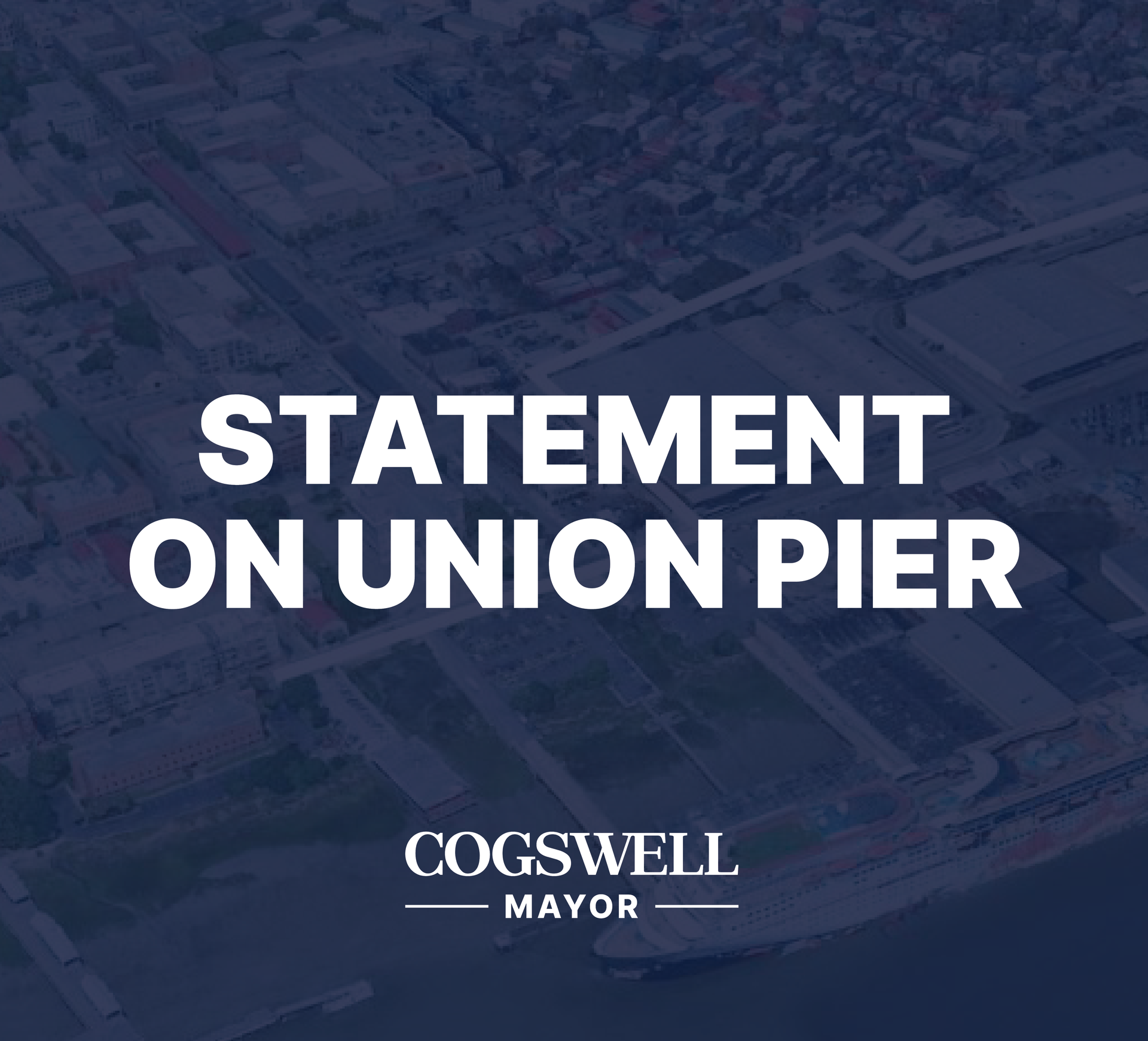
March 2, 2023 (Charleston, SC) - Now, more than ever, our city needs strong, proactive leadership, and Union Pier is but one recent example of this. To date, our city’s leadership has played a passive, reactive role when it comes to the handling of this once in a lifetime redevelopment opportunity. Nearly three years ago, the South Carolina Ports Authority hired Lowe to get the permitting and zoning in place to sell Union Pier. Since then, they have tried to incorporate community feedback while balancing their financial objectives prior to submitting their proposed PUD to the city. This PUD, likely to go before the city’s Planning Commission in the coming months, understandably has citizens incredibly anxious about its high density, limited public space and the economic uncertainty of its infrastructure costs. To me, it is clear that this anxiety is the fault of our city leadership’s negligence over the past three years. During the time that the Ports Authority and Lowe were fastidiously working on their plan, the city was not working on its own plan and objectives , nor were they running any sort of models as to how the expensive infrastructure required would be funded. In failing to craft its own vision, guiding principles, and economic analysis over a nearly three year period, city leadership has allowed itself and its citizens to be backed into a corner. Now, the city is on its heels trying to give a rushed response to meet an arbitrary timeline that it has full control over. From my experience as a developer of historic properties, this tactic will, at best, produce only marginally better results for the city. Our citizens deserve better. A strong, proactive leader would have led with vision , anticipating this potential outcome years before this inevitable juncture at which we now find ourselves. The city must slow down this process to ensure it has time to responsibly address the density and mass issues at hand and conduct independent financial analysis on the infrastructure requirements. From my time in the Legislature and experience in business, I know that there are alternatives that can both support the Port and enhance the public realm and character of Charleston. This is a world I know, and how we respond to this opportunity to redevelop our waterfront in a meaningful way will impact our city for centuries to come. If elected as your next mayor on this and all similar development and revitalization issues across our city - from West Ashley to Daniel Island - I will be the proactive, visionary leader Charleston desperately needs.


